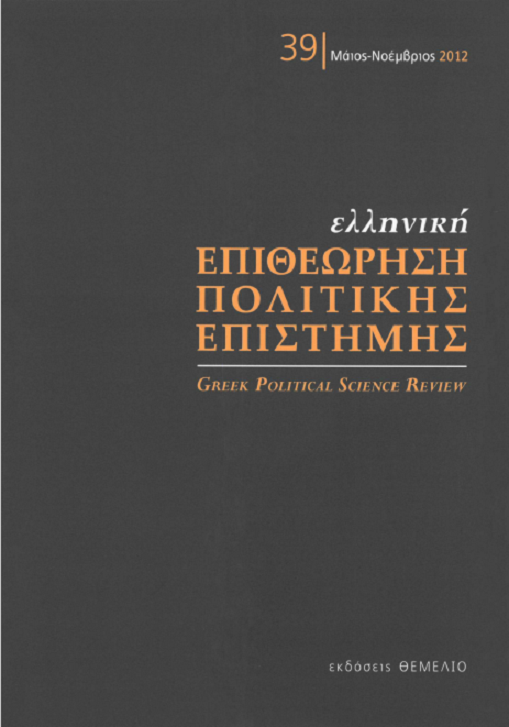National economic policy and sovereign debt crisis: will a crisis of democracy follow?
Abstract
Ever since the creation of EMU, important aspects of economic policy-making have been removed from elected governments. This was acceptable during the 'good years' of sufficient economic growth, low inflation and low interest rates, when the systemic weaknesses of the edifice were hidden from view, as well as the imbalances which accumulated between 'North and 'South'. As the tide has changed, however, and programmes of reform and austerity have been 'forced' upon electorates in Greece, Ireland, and Portugal- with Cyprus and Spain negotiating their own packages, important transformations are beginning to take place in their domestic policy settings. Are the relationships between electorates and elected leaders being re-shaped? Is political legitimacy becoming obsolete, as necessary 'external' adjustment becomes inevitable? The possibility of the sovereign debt crisis turning into a crisis of democracy can no longer be discarded.
Article Details
- How to Cite
-
Παναγιωταρέα Ε. (2017). National economic policy and sovereign debt crisis: will a crisis of democracy follow?. Greek Political Science Review, 39, 84–105. https://doi.org/10.12681/hpsa.14547
- Section
- Special Section

This work is licensed under a Creative Commons Attribution-NonCommercial-ShareAlike 4.0 International License.
Authors who publish with this journal agree to the following terms:
Authors retain copyright and grant the journal right of first publication with the work simultaneously licensed under a Creative Commons Attribution licence that allows others to share the work with an acknowledgement of the work's authorship and initial publication in this journal.
Authors are able to enter into separate, additional contractual arrangements for the non-exclusive distribution of the journal's published version of the work (e.g. post it to an institutional repository or publish it in a book), with an acknowledgement of its initial publication in this journal.
Authors are permitted and encouraged to post their work online (preferably in institutional repositories or on their website) prior to and during the submission process, as it can lead to productive exchanges, as well as earlier and greater citation of published work (See The Effect of Open Access).



